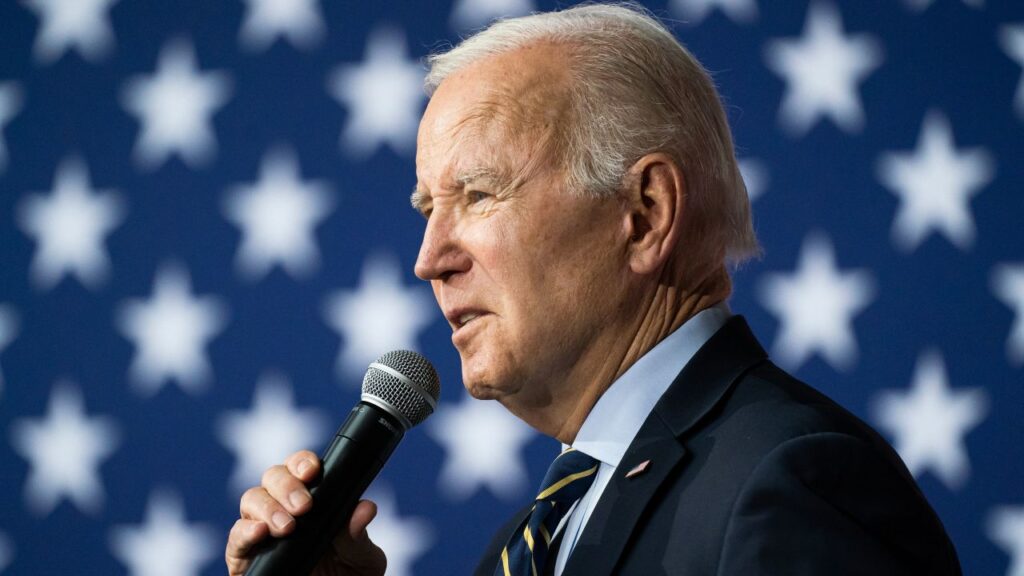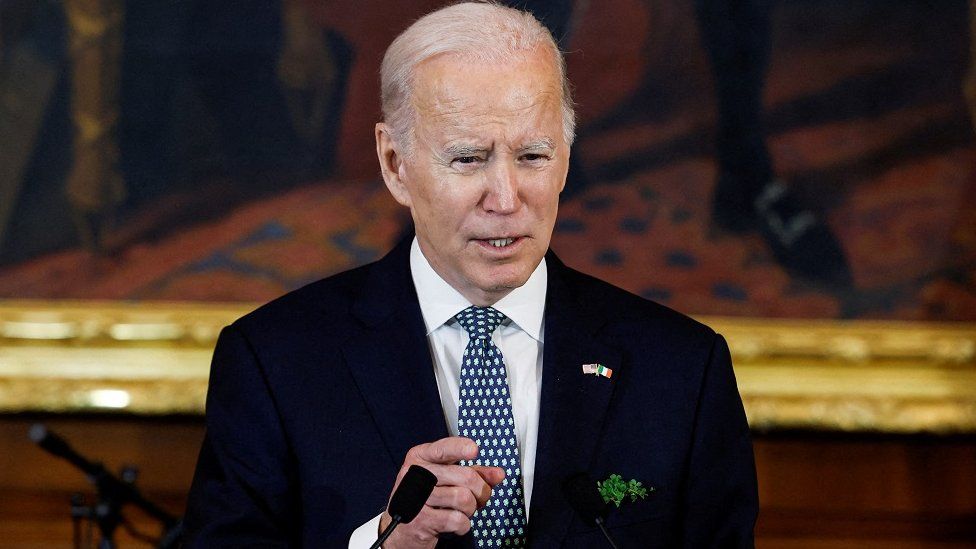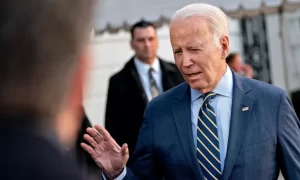Joe Biden expresses confidence that the United States will avoid default

President Joe Biden expressed confidence on Wednesday that the United States would successfully avert default, conveying his optimism that a crisis could be avoided. He made these remarks while departing for a foreign trip, even as debt ceiling negotiations reached a critical point.
Speaking from the White House Roosevelt Room, Biden stated, “I’m confident that we’ll reach an agreement on the budget, ensuring that America does not default.” He further emphasized, “We will unite and come together because there is no viable alternative.”
Biden’s comments coincided with the commencement of his five-day visit to Japan, where he would engage with G-7 leaders. Originally scheduled to visit Papua New Guinea and Australia after his stop in Hiroshima, the president decided to cancel the latter part of his trip in order to focus on reaching a debt ceiling deal.
The president assured that he would maintain constant communication with his team while traveling abroad and ensure his presence for the final negotiation. He also hinted at holding a press conference upon his return on Sunday, where he could address the developments.
Biden, who firmly maintains that raising the debt ceiling is non-negotiable, highlighted that the ongoing discussions revolve around the parameters of the 2024 budget rather than questioning the nation’s commitment to honoring its debts.
“It’s not about whether or not we will fulfill our financial obligations,” Biden emphasized. “All the leaders involved have reached a consensus that default is not an option. Every leader has affirmed that stance.”
House Speaker Kevin McCarthy, accompanied by other GOP lawmakers, held a news conference on the Capitol steps shortly after President Biden’s remarks, offering a different perspective on the ongoing negotiations.

McCarthy stated, “The president and Leader Schumer have finally retreated from their stance of refusing to negotiate. They have finally abandoned the illogical, irrational, and nonsensical idea of simply raising the debt ceiling.”
The nation is heading towards a situation where it may be unable to meet all its financial obligations by early June, potentially as early as June 1, unless lawmakers raise or suspend the debt ceiling.
There were some signs of progress following Tuesday’s meeting between Biden and congressional leaders at the White House.
Biden and McCarthy have selected key staff members to engage in negotiations. Office of Management and Budget Director Shalanda Young and Steve Ricchetti, counselor to the president, will represent the White House in discussions with Representative Garret Graves, a Louisiana Republican and a close ally of McCarthy.
The group began their work late Tuesday night and is scheduled to meet again on Wednesday, according to Biden.
MORE: Biden, McCarthy face serious time crunch to reach debt ceiling deal
One point of contention emerging in the negotiations revolves around work requirements for social programs. The debt ceiling and budget bill passed by House Republicans in April included provisions to expand work requirements for certain federal aid programs, such as Medicaid and the Supplemental Nutrition Assistance Program.
On Wednesday, Biden stated that he would not accept any requirements that would impact people’s medical or health needs, but he did leave the door open for other provisions.
“It’s possible there could be a few others, but nothing substantial,” he commented.
When asked about Biden’s comments on work requirements, McCarthy and other GOP lawmakers briefly burst into laughter.
“This is a senator who voted for work requirements,” McCarthy remarked.
Meanwhile, on Wednesday, House Democrats took steps to move forward with a discharge petition, a seldom-used procedural tool that would allow them to bypass traditional rules, as a potential method to raise the debt ceiling in the absence of an agreement.
“After the meeting at the White House, I am hopeful that there is a real path to finding an acceptable bipartisan resolution that prevents a default,” stated House Minority Leader Hakeem Jeffries, a Democrat from New York, in a letter to colleagues. “However, given the approaching June 1 deadline and the urgency of the moment, it is important that we pursue all legislative options in case no agreement is reached.”






